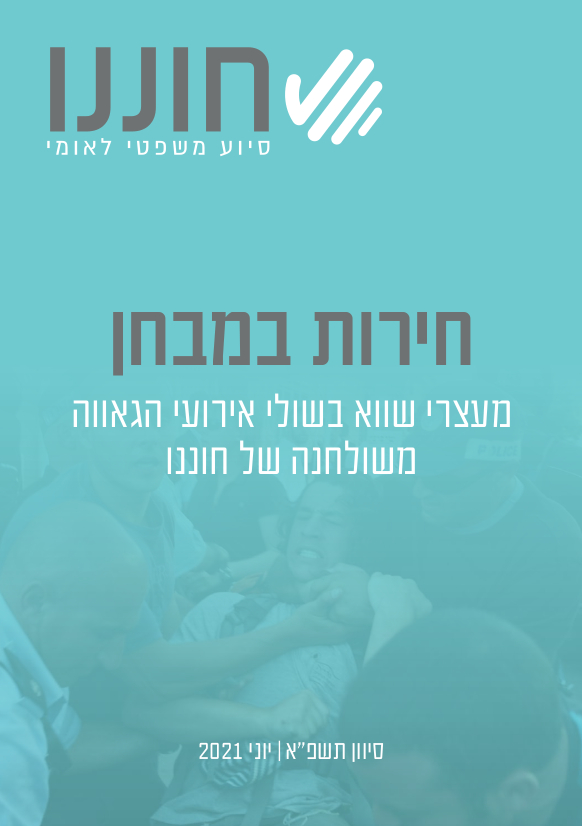Honenu has represented many citizens whose fundamental rights, including freedom of expression and freedom of protest, have been violated with regard to pride marches. Please click here for a list of relevant posts.
Wednesday, August 18, 2021, 9:06 In a compromise agreement between the sides, the police will pay 3,500 NIS in compensation to a youth, A., who was detained without cause as he attempted to legally protest the Jerusalem Pride March in 2020. Honenu Attorney Menashe Yado, who is representing the youth, welcomed the decision.
Yado: “The police are taking sides and enforcing the law according to the public mood. The suits which we are filing have not stopped this practice. On one hand, the police are paying compensation, and on the other, they are continuing to violate protesters’ rights. Despite this, we will continue to sue. This year, we also filed a complaint with the State Comptroller of Israel, against the police, regarding pride marches. Soon, we intend to petition the High Court of Justice against some of the illegal practices which the police implement against demonstrators protesting the pride marches. Bottom line, we are using all the legal means which we have to allow democratic protest.”
The detention occurred during the 2020 Jerusalem Pride March. A., who was then approximately 20 years old, attempted to protest the march. The statement of claim describes the incident:
A. arrived at the edge of the area designated for the Pride March, where he intended to hold a protest sign. A plain-clothes policeman approached A. and presented his badge. A. asked the policeman where he should stand with his sign, and in response the policeman told him that he was being detained and taken in to the police station. A. was loaded into a police car, his cell phone was confiscated, and he was taken to the Russian Compound. After a long while, A. was interrogated on suspicion of disturbing public order, and released shortly before midnight. As he left, the policeman told him that he could take his sign from under the police station.
During the interrogation, the interrogator told A. that it was forbidden for him to stand with a sign and it was forbidden for him to protest without receiving a permit in advance. Such statements are not only legally baseless, but are contrary to the accepted norms at all levels of the law in the State of Israel.
A. had the right to stand outside of the area of the Pride March, with a protest sign, and the police restricted the freedom of expression of opponents to the march. The police maintained the appearance of a democracy, but in practice, anyone who protested was detained and taken in to the police station. The injury to the plaintiff is double: First he was deprived of his right to protest, and then he was detained at the station for hours.

